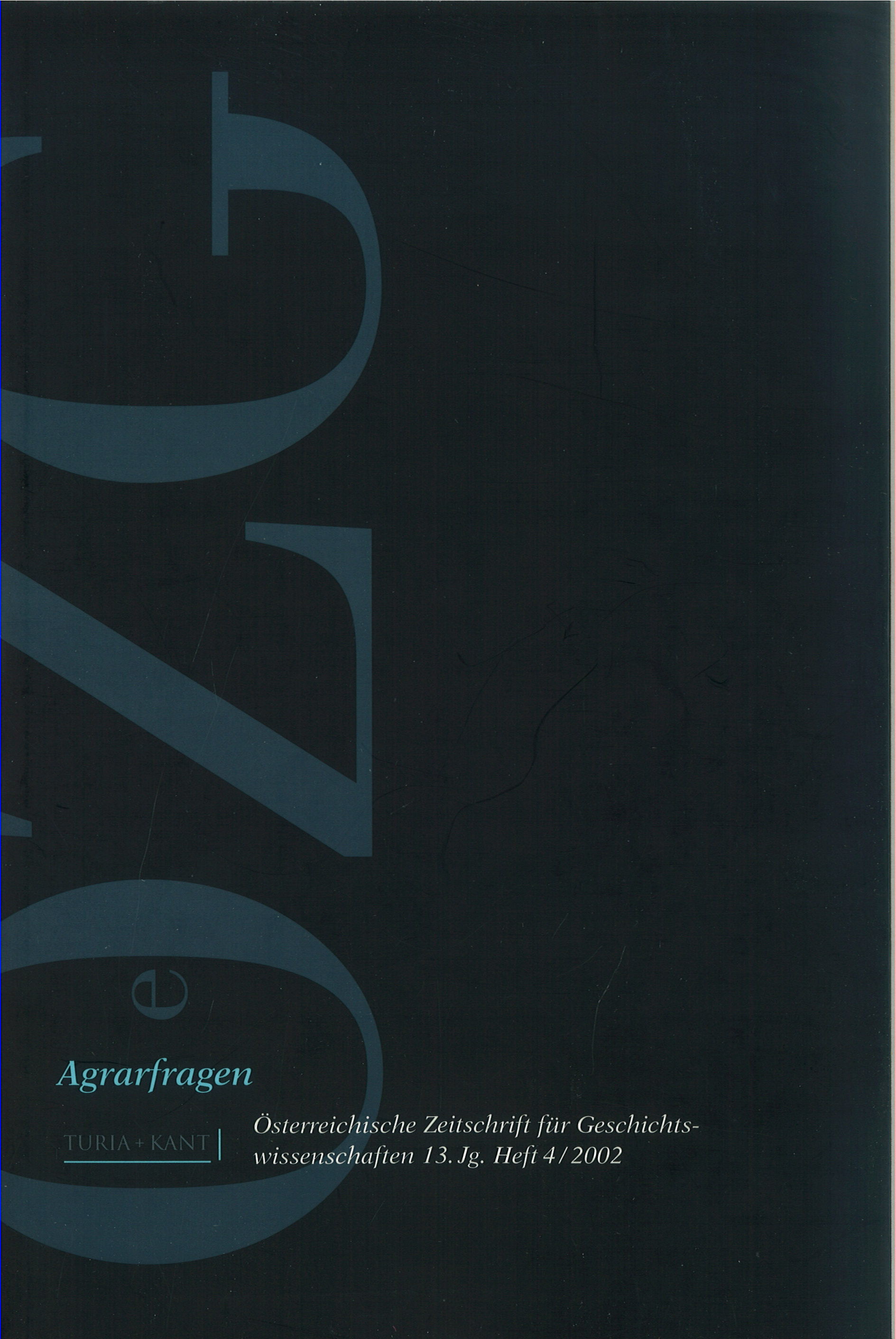Living conditions and strategies of protocapitalist agricultural producers
>Peasant-merchants< in the Palatinate and Rhineland-Hesse (1770-1880)
DOI:
https://doi.org/10.25365/oezg-2002-13-4-5Abstract
In Germany research on the transformation of agriculture at the end of the Ancien Regime goes back to the beginning of economics in the last third of the 19'" century. However, empirical case studies designed to illuminate precisely the concrete circumstances, local factors, and scopes of action of agricultural producers are scarce. Moreover, theoretical, and methodical considerations for the research on the origins and the course of agrarian capitalism are largely lacking. Some of these gaps are tackled in this article through the example of substantial farmers engaged in agriculture, craft production, and trade in two Southwest Germany regions. In confessional terms the high percentage of Mennonites in this group is remarkable. Drawing on the examples of four Mennonite and one Lutheran families the ecological, legal, economic, social (familial) and confessional circumstances and the economic strategies of these >peasant-merchants< are analysed.


